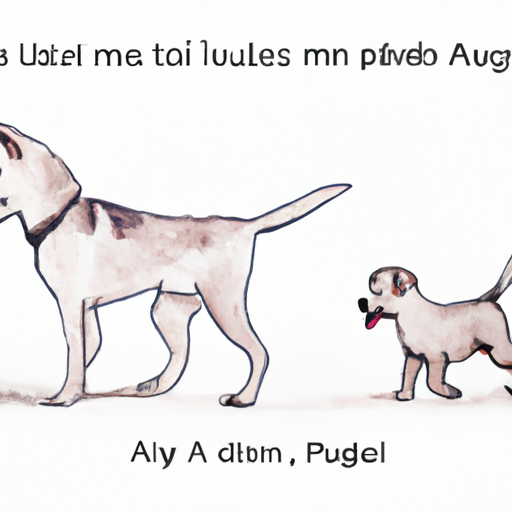Understanding Dog Growth
Dog growth is a fascinating journey that can be just as intriguing and complex as human development. As a devoted caregiver, it’s essential to understand how your four-legged friend matures from a tiny puppy to a full-grown adult.
Puppyhood: The First Year
Your dog’s first year is a whirlwind of rapid growth and change. This is the period when they’re most susceptible to learning and socialization, and you play a crucial role in shaping their behavior.
Birth to 8 Weeks
During this time, puppies rely entirely on their mothers for sustenance and warmth. They’ll open their eyes around two weeks old and start to explore their environment.
- Birth: Puppies weigh 1-2 pounds at birth.
- 2 weeks: Puppies open their eyes and begin to crawl.
- 3-4 weeks: Puppies start to walk, explore, and develop teeth.
- 5-8 weeks: Puppies are weaned and begin to eat solid food.
8 Weeks to 1 Year
- 8-12 weeks: This is a critical socialization period. Puppies learn to interact with humans and other pets.
- 4-6 months: Puppies start teething and become more independent.
- 6-12 months: Puppies enter adolescence, a period marked by increased energy and rebellious behavior.
Adult Dog: 1-7 Years
At one year old, your dog is considered an adult. Their personality and physical traits are now established. However, they continue to mature and learn new behaviors.
Physical Maturity
| Small Breeds | Medium Breeds | Large Breeds |
|---|---|---|
| 9-12 months | 12-15 months | 2-2.5 years |
Behavioral Maturity
Behavioral maturity depends on your dog’s breed and individual personality. Most dogs reach this stage between 1-3 years old.
Senior Dogs: 7+ Years
As your dog ages, they may experience changes in their metabolism, behavior, and overall health. Regular check-ups with your vet are crucial during this time.
Factors Influencing Dog Growth
Genetics, nutrition, and environment significantly impact your dog’s growth and development. Making sure your pup has a balanced diet, plenty of exercise, and a nurturing environment will help them thrive.
Common Growth-Related Issues
Several common issues can affect your dog’s growth:
- Obesity: Overfeeding and lack of exercise can lead to obesity, which can cause numerous health problems.
- Developmental Disorders: Some breeds are prone to specific developmental disorders, such as hip dysplasia in large breeds.
- Parasites: Worms and other parasites can impact a puppy’s growth.
FAQs: Dog Growth
1. How fast do puppies grow?
It depends on their breed. Small breeds reach adulthood faster than large breeds.
2. When do dogs stop growing?
Small and medium breeds finish growing by 12-15 months, while large breeds may not fully mature until 2-2.5 years old.
3. Can diet affect my dog’s growth?
Yes. A balanced diet is crucial for your dog’s development. Consult with your vet to determine the best diet for your pup.
4. What can I do to support my dog’s growth?
Provide a balanced diet, regular exercise, regular vet check-ups, and a nurturing environment.
5. When should I be concerned about my dog’s growth?
If your puppy seems significantly smaller or larger than typical for their breed, or if they’re showing signs of discomfort or pain, consult your vet.
Understanding your dog’s growth can help you provide the best care possible, ensuring they live a long, healthy, and happy life. Always remember, every dog is unique, and what’s most important is that they feel loved and cared for.



